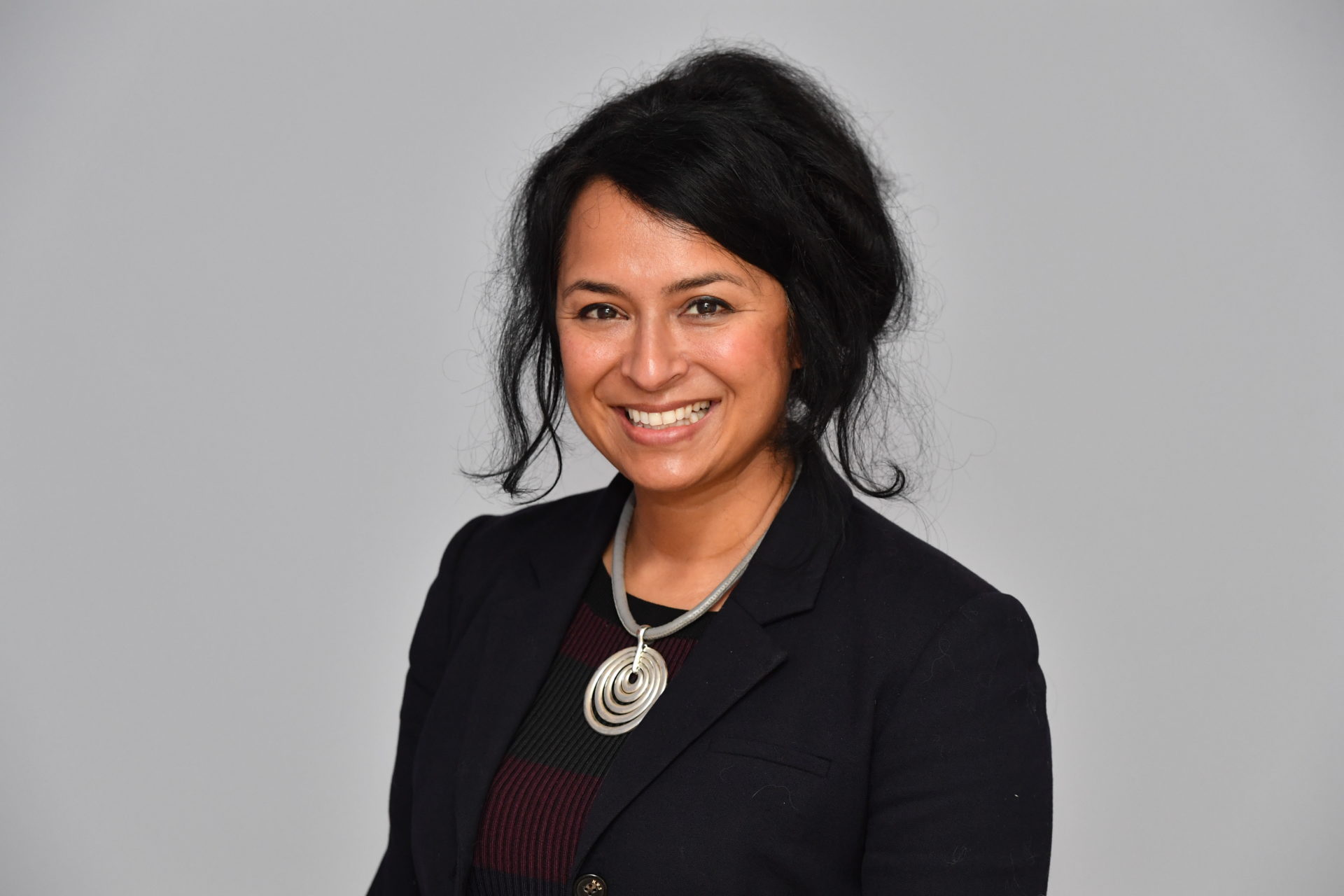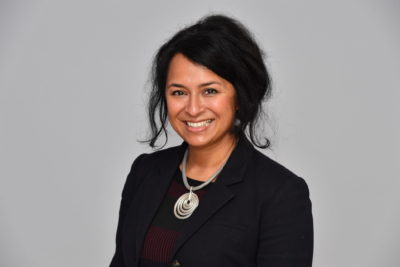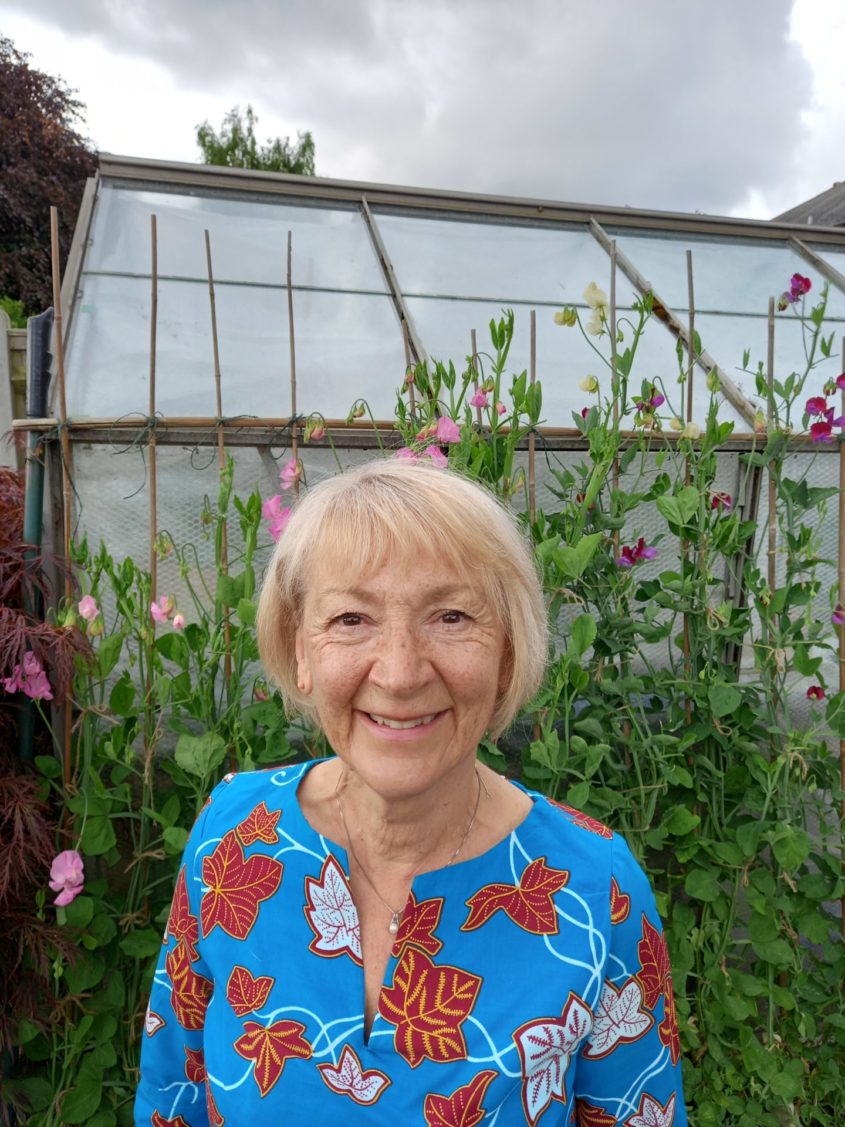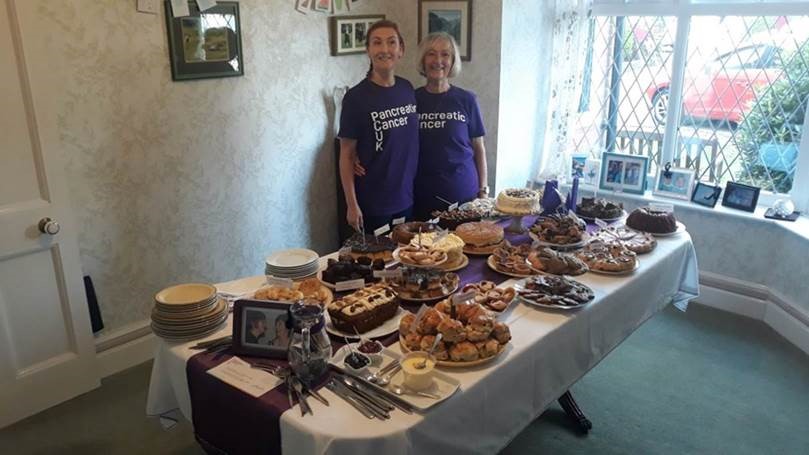



Our Research Involvement Network: Shaping the future of pancreatic cancer research
Dr Naureen Starling is a Consultant Medical Oncologist at the Royal Marsden NHS Foundation Trust.
Dr Naureen Starling is a Consultant Medical Oncologist at the Royal Marsden NHS Foundation Trust specialising in the treatment of gastrointestinal cancers, as well as researching new therapies. Here she shares how our Research Involvement Network was crucial in supporting her successful application to the Small Business Research Initiative Healthcare Cancer Programme, which will fund an innovative project investigating the potential of blood biopsies for earlier and faster detection of cancer.
Our Research Involvement Network (RIN) is a group of over 300 individuals who have a personal connection to pancreatic cancer, including patients, carers, loved ones and survivors. RIN members have a critical role in reviewing applications for funding, making sure that any proposed research stays relevant to people affected by pancreatic cancer. The dedication of these individuals extends beyond applications for funding from Pancreatic Cancer UK, with a number of researchers having reached out for support from the RIN for applications for funding by other charities and funding bodies.
Recently, our RIN provided invaluable input which helped develop Naureen Starling’s successful application to a prestigious large cancer innovation fund that is looking for interventions to improve cancer diagnosis, known as the Small Business Research Initiative (SBRI) Healthcare Cancer Programme Competition. One of our RIN members, Jackie Edgeller, volunteered to become a co-applicant, offering a letter of support as a patient representative. She continues to be involved in the steering committee for the duration of the award, providing advice and guidance to the implementation of the programme.
We spoke to Naureen to understand more about how Jackie and the RIN were involved in helping to shape her application.
When and why did you decide to approach Pancreatic Cancer UK for support with applying to the SBRI Healthcare Cancer Programme competition?
In a way, one of the first drivers for our application to SBRI Healthcare Cancer Programme was the campaign led by Pancreatic Cancer UK: “Demand Faster Treatment”. In early 2021, a year into the COVID-19 pandemic, Pancreatic Cancer UK were also highlighting the worrying impact of the pandemic for patients with pancreatic cancer, including the huge disruption to diagnosis.
At that time, we had just completed a pilot study at The Marsden, funded by the Royal Marsden Cancer Charity, using very small amounts of DNA in blood biopsies, as a new way to speed up diagnosis of pancreatic cancer and bile duct cancer. The study had shown very encouraging results and we were preparing to scale it up to look at a larger number of people. It therefore made complete sense that Pancreatic Cancer UK and our bile duct cancer charity AMMF should be our first port of call to shape our thoughts on our application to the SBRI Healthcare Cancer Programme.
Pancreatic Cancer UK is the charity that many of us clinicians would think to contact when we need advice on research or innovation projects for pancreatic cancer, and to ensure that the involvement of patients and public is at the heart of what we do.
How did you work with Pancreatic Cancer UK throughout the application process?
We worked hand in hand with Pancreatic Cancer UK and AMMF throughout the entire application process. Pancreatic Cancer UK helped bring us together with their RIN, whose lived experience of pancreatic cancer was really critical to us.
We heard some really powerful testimonials and pleas to the healthcare system, doctors and policy makers to challenge the current status quo and to do so with urgency. It helped us frame our question and to plan the project accordingly. It also made us adjust some of our focus and communication, especially where it was not clear or obvious to the group. If the people who will be recipients of an innovation cannot understand one or more aspects of the proposal, then either our proposal or the way we communicate about it needed to change. Research and innovation should serve well the people it is designed for and not vice versa!
We were introduced to Jackie Edgeller through a patient focus group that Pancreatic Cancer UK helped us convene. She was a willing volunteer to join as a co-applicant and a steering committee member. She’s a critical member of our team.
We heard some really powerful testimonials and pleas to the healthcare system, doctors and policy makers to challenge the status quo and to do so with urgency. It helped us frame our question and to plan the project accordingly.
How valuable was the help from the team at Pancreatic Cancer UK as well as the Research Innovation Network? How did it impact the overall outcome of the application?
All funders recognise the critical role patients, carers, advocacy groups and charities play in the research that they fund and rightly expect to see high quality public and patient involvement in funding applications. With the support of Pancreatic Cancer UK and their RIN we were able to demonstrate this in a highly meaningful way going all the way from demonstrating the patient need, defining the question, shaping the application and how we evaluate the programme and markers of success from a patient as well as NHS perspective. I have no doubt this helped us in our successful bid and I cannot imagine even having submitted a bid without it.
What are the next steps for this project?
We are in the initial stages of an 18 month programme where we will be looking at 650 patients with scans suspicious for pancreatic and bile duct cancer across 6 hospitals. We hope to be setting up the first hospitals by June of this year. It’s all systems go and very exciting! It’s a short time to deliver and evaluate the project but thinking back to our patient focus group – the urgency resonates with their voices and therefore the onus is on us to make it happen.
As member of the steering committee, Jackie continues to provide advice and direction to the programme- understanding and helping with solutions to problems and potential barriers. She has already helped us design information for patients about the new technology and support uptake. It’s still early days so I envisage a lot more help, steer and advice needed from Jackie!


Helping shape applications for funding: A RIN member’s perspective
“I lost my only sister, Lorraine, to pancreatic cancer in 2013. I became aware of the RIN after browsing Pancreatic Cancer UK’s website. I was contacted by email and started to apply for opportunities to get involved with research into pancreatic cancer. Dr Starling’s project interested me as it is examining a blood test for earlier diagnosis of pancreatic cancer.
Initially, I was contacted to take part in a patient focus group meeting for Dr Starling’s project. I was able to suggest some amendments to the Patient Information Leaflet to help patients and carers understand it in layman’s terms. I also suggested that the patient’s comfort should be a consideration during hospital visits. I was soon asked if I would like to accept becoming a co-applicant to the steering group. I answered, if they thought I was capable of such a role, I would be delighted.
The steering committee will continue to meet on a regular basis throughout the project. As lay member of the committee, my role is to represent the patients and their carers. I read all details about the project and am kept up to speed by the medical team. My focus is to review any written details given to the patient, and suggest alterations where necessary.
As a member of the RIN, the support from all the researchers is excellent and they all welcome you. It is cathertic and a bonus to feel that you can help to make a difference in the treatment of patients with this devastating disease.” – Jackie Edgeller (RIN Member, and Programme Co-applicant)
As a member of the RIN, the support from all the researchers is excellent and they all welcome you. It is cathertic and a bonus to feel that you can help to make a difference in the treatment of patients with this devastating disease.


If you have a lived experience of pancreatic cancer and would like to help get vital research funded, find out more about how you could join the RIN here.
If you are a researcher and would like to learn more about how the RIN can help you with your application for funding, please email our research team.
You can also read this blog by Dr Dom O’Connor, who is working on one of our Research Innovation Fund projects and provides the researcher perspective of gaining insight from people affected with pancreatic cancer through our RIN.

